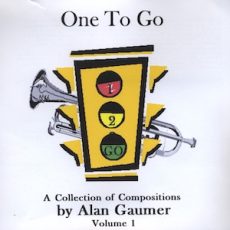
Daily Dose Of Jazz…
Alan Gaumer was born on July 25, 1951 in Bethelehem, Pennsylvania. He began playing the trumpet when he was eight and was a member of Kal’s Kid’s that appeared on the Ted Mack Original Amateur Hour as well as numerous other television shows. Throughout elementary, junior and high school he participated in band, orchestra, and stage bands and graduated from Freedom High School in 1969.
He studied with John Nero and Willard Schissler and performed with the Allentown Band before attending the U.S. Navy School of Music. Upon graduation he spent the next three years living in Gaeta, Italy touring Europe, Africa and Asia with the Navy Show Band. Offered the jazz trumpet position at the U.S. Naval Academy in Annapolis before his discharge, from 1973-75 he toured first as trumpeter and later as drummer with the well known group KATO.
Settling back in the Lehigh Valley, Pennsylvania he was an integral part of a popular group P.F. & the Flyers and his own A.G.Q. After attending Rutgers University, Alan spent two years touring South America and West Africa with the U.S. Navy Show Band. When he got out in 1982, he worked for several years at well known hotels and resorts.
He has performed with a long list of jazz musicians which include Randy Brecker, Phil Woods, Al Cohn, George Young, Bob Dorough, Tom Harrell, Bill Watrous, Urbie Green, Kim Parker, Vic Jurris, Charles Fambrough, Bill Washer, John Swanna, David Leonhardt, Steve Gilmore, Bill Goodwin, Bobby Routch, Tom Schuman of Spyro Gyra and others.
As an educator Gaumer has been the jazz trumpet Artist/Lecturer at Moravian College since 1994 and served as Fusion ensemble director in 1998-99, 2003-04 and 2005-06. He is Artistic Director of the Pennsylvania Jazz Collective, a Lehigh Valley based non-profit jazz organization.
Trumpeter and educator Alan Gaumer continues to perform, teach and produce jazz events.
More Posts: bandleader,educator,history,instrumental,jazz,music,trumpet
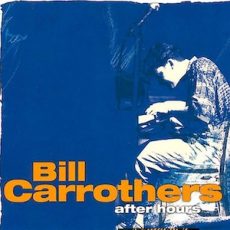
Daily Dose Of Jazz…
Bill Carrothers was born July 13, 1964 in Minneapolis, Minnesota. He began playing piano at age five, studying with his church organist before learning jazz from pianist Bobby Peterson. By age 15 he was performing in jazz clubs, and in 1982 he briefly attended North Texas State University.
After a year at North Texas, Carrothers was a member of Irv Williams’ band before a move to New York City in 1988. He performed at the Knitting Factory, The Village Gate, and Birdland as well as Blues Alley in Washington, D.C. He has worked with Buddy DeFranco, Curtis Fuller, Billy Higgins, Freddie Hubbard, Lee Konitz, James Moody, Gary Peacock, Dewey Redman, Charlie Rouse, James Spaulding, Terell Stafford, Toots Thielemans, and Prince.
He has performed in France, Belgium, Germany, Austria, and Switzerland. In 2009 Bill played a week-long stand at the Village Vanguard with his European trio Nicolas Thys and Dre Pallemaerts, which resulted in a 2011.
He performs solo piano concerts, made his Monterey Jazz Festival debut and is a regular on the Chicago scene. He is an adjunct professor at Lawrence University in Wisconsin. Carrothers was awarded the Grand Prix du Disque for Jazz in 2004 and was nominated for the Les Victoires du Jazz, twice.
Pianist and composer Bill Carrothers, who has cited Clifford Brown, Shirley Horn, and Oscar Peterson as influences on his development as a musician, continues to perform without shoes to better feel the piano pedals, sitting in a chair to achieve his preferred seating height.
More Posts: bandleader,composer,history,instrumental,jazz,music,piano
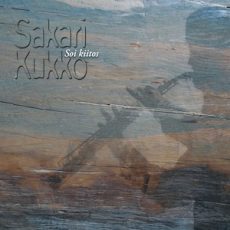
Daily Dose Of Jazz…
Jyrki Sakari Kukko was born July 8, 1953 in Kajaani, Finlan and started his career in the early 1960s as a singer participating in several singing contests and performing in radio stations, TV programs and other venues. At the age of 7, he began taking piano lessons and soon after started playing guitar and flute, then saxophone. The mid-1960s saw him forming bands, constructing a school band, playing mainly rock and roll, before forming a group of local dance bands.
He embarked his career at sixteen playing with the Kajaani Big Band, Kisu & Uniset, Markku Suominen’s Monopol, Tapiola Big Band, Oulunkylä Big Band, Maarit & Afrikan Tähti, Kalevala, SIMO Big Band, Jukka Tolonen’s band, Heikki Sarmanto’s band, Sensation Band of Addis Ababa, Mahmoud Ahmed’s Ibex Band, Etoile de Dakar, and Espoo Big Band through the Seventies. He founded the group Piirpauke in 1974.
He has performed with Youssou Ndour, John McLaughlin, Pat Metheny, Bob Mose, Lester Bowie, Charlie Mariano, Thad Jones, Paquito d’Rivera, Ted Curson, Walter Bishop Jr., Herbie Hanckock’s HeadHunters, Richie Cole, Juan Carlos Romero, and numerous Finnish musicians.
Working as a studio-musician Kukko performed as a freelancer with the Helsinki Philharmonic Orchestra, Finnish Radio Symphony Orchestra, and the Finnish National Opera. He has composed music for his own bands, EBB, Koiton Laulu and several films and theaters.
Pianist, flutist, guitarist, saxophonist, vocalist and composer Sakari Kukko continues to perform with over forty countries around the globe.
More Posts: bandleader,composer,flute,guitar,history,instrumental,jazz,music,piano,saxophone,vocal
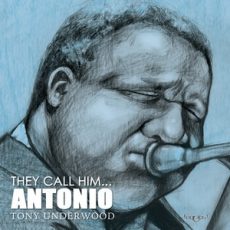
Daily Dose Of Jazz…
Antonio Underwood was born on July 7, 1960 in Charlottesville, Virginia. He matriculated through the Yale School of Music as a Classical Tuba Major, where he was awarded several honors. Graduating in 1987 he has since been a member of the two-time Grammy Award winning McCoy Tyner Big Band.
He began his career playing in NYC clubs at the age of nineteen and has performed alongside Max Roach, Jerry Gonzalez, Julius Preister, Delfeayo Marsalis, Bob Belden, Christian McBride, Cecil Taylor, Cecil Bridgewater, Vincent Herring, Joshua Redman, Javon Jackson, Lester Bowie, John Faddis, Charlie Haden, Eddie Henderson, Billy Harper, and the list goes on.
He has been a cast member of Broadway musicals Juan Darien, Jelly’s Last Jam, One Mo’ Time and Further Mo. Tony’s composition and orchestration credits include recordings by Be Be Winans, Terry Dexter, John Purcell, The World Saxophone Quartet, Anthony Montgomery, among others. Owner of his own published material (380), brass quartets published by TAP Music (Iowa), and Jazz compositions published by ENJA Music, Germany.
Underwood has scored films Rumbling of the Earth and Shadows of the Dead. He has produced tracks for Lisa Fischer, Katreese Barnes, Steve Jordan, and Anthony Jackson. He is the first Black person to be a George Lucas scholar to the Scoring for Motion Pictures and Television program at USC and is a Fulbright Scholar Lecturer in Serbia.
Tubist, composer and lecturer Tony Underwood continues to perform, compose and lecture.
More Posts: bandleader,composer,history,instrumental,jazz,lecturer,music,tuba
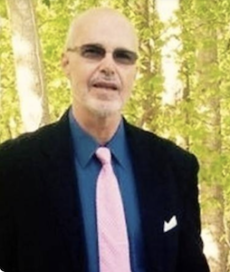
Daily Dose Of Jazz…
John Cusick was born on July 1, 1949 in Washington, D.C. He studied percussion with former drummer of the Charlie Byrd Trio, Bill Reichenbach. He has gone on to perform with other jazz greats that call Washington home, such as legendary pianist John Malachi and Keter Betts.
He has entertained DC area jazz audiences for more than 30 years, and has performed at the John F. Kennedy Center for the Performing Arts.
Drummer John Cusick leads the area’s finest jazz performers, in trios, quartets, quintets and larger ensembles for night club, concert and private engagements.
More Posts: bandleader,drums,history,instrumental,jazz,music



